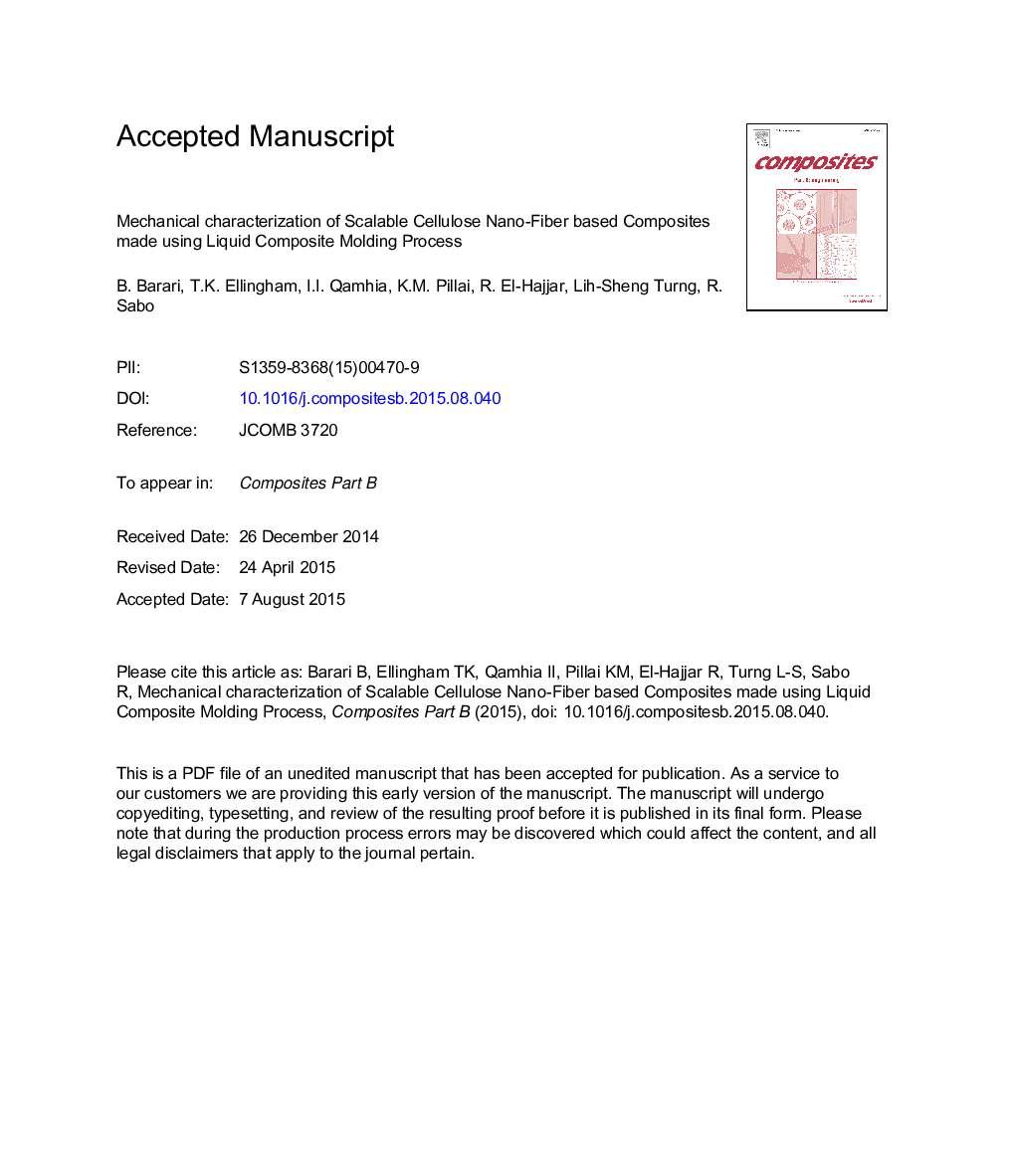| Article ID | Journal | Published Year | Pages | File Type |
|---|---|---|---|---|
| 7213054 | Composites Part B: Engineering | 2016 | 26 Pages |
Abstract
Plant derived cellulose nano-fibers (CNF) are a material with remarkable mechanical properties compared to other natural fibers. However, efforts to produce nano-composites on a large scale using CNF have yet to be investigated. In this study, scalable CNF nano-composites were made from isotropically porous CNF preforms using a freeze drying process. An improvised Liquid Composite Molding (LCM) process was used to make the nano-composites using a high bio-content 'green' epoxy resin. Formation of the freeze dried CNF preforms' porous network highly affects the mechanical properties of the composite, therefore mechanical testing was performed to characterize the effects of pore structure on global mechanical properties. The level of cure was investigated by comparing DSC results and the effect of curing on the composites was studied by tensile and dynamic mechanical analysis tests. The efficacy of silylation on the CNF preforms was analyzed with Water Contact Angle (WCA) measurements where the treatment led to hydrophobicity and hence better wettability by the non-polar resin. The causes of the failure in the composites were investigated using SEM analysis of the fractured surfaces. In general, silylation improved the infusion of resin into CNF preforms and resulted in better mechanical properties.
Keywords
Related Topics
Physical Sciences and Engineering
Engineering
Engineering (General)
Authors
Bamdad Barari, Thomas K. Ellingham, Issam I. Ghamhia, Krishna M. Pillai, Rani El-Hajjar, Lih-Sheng Turng, R. Sabo,
